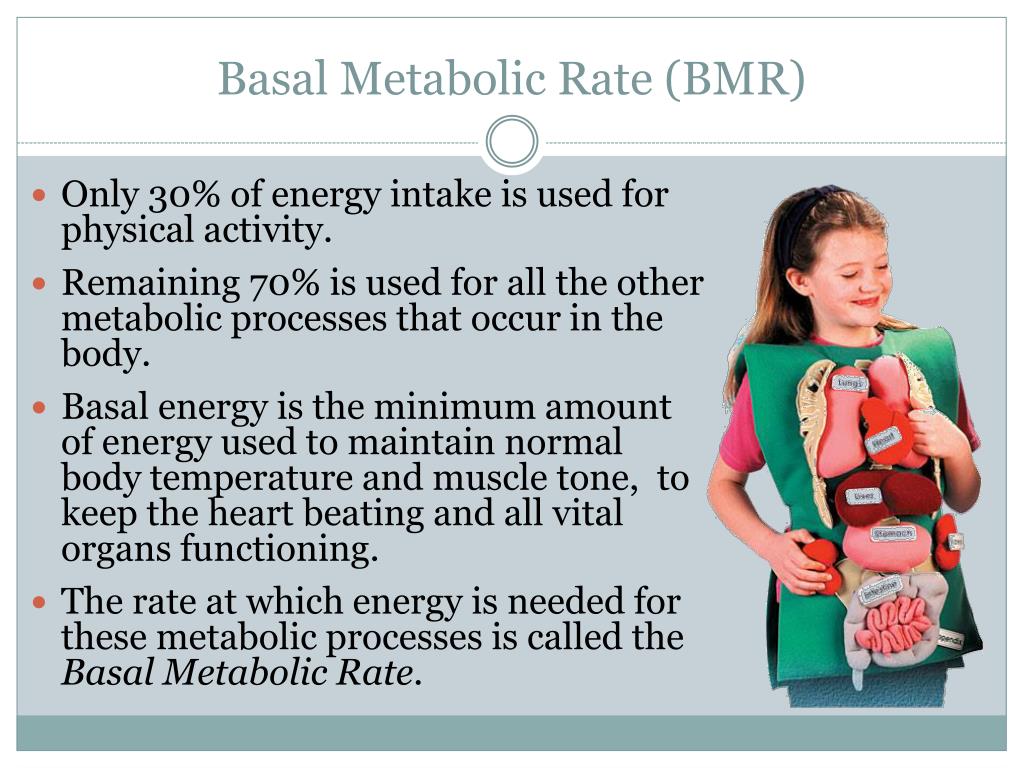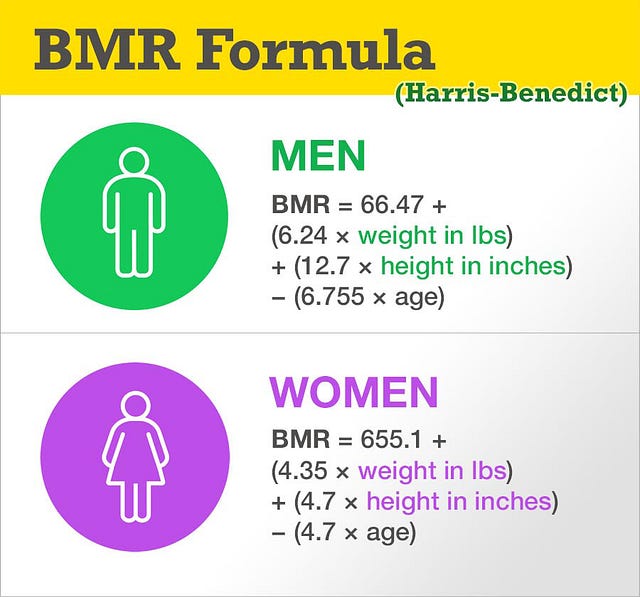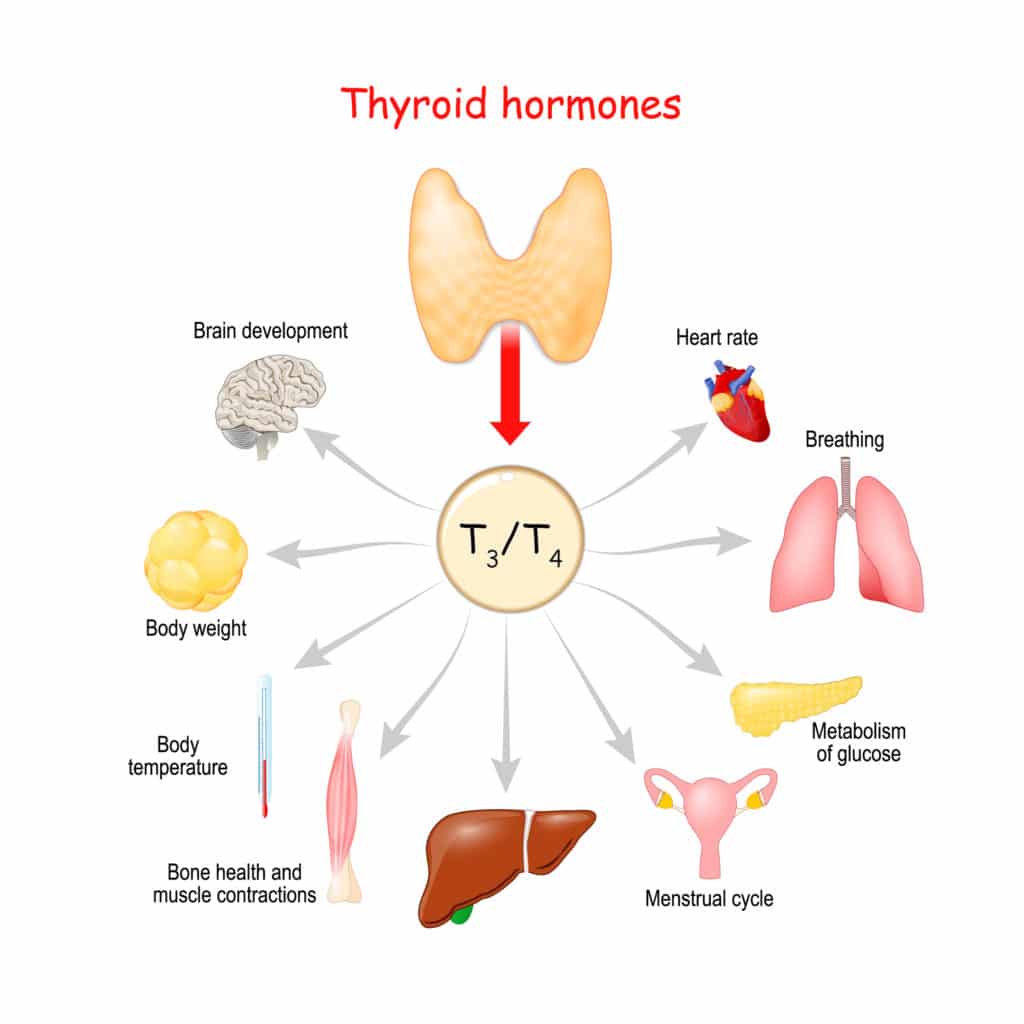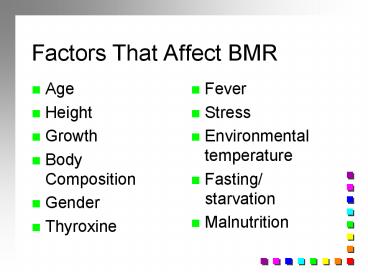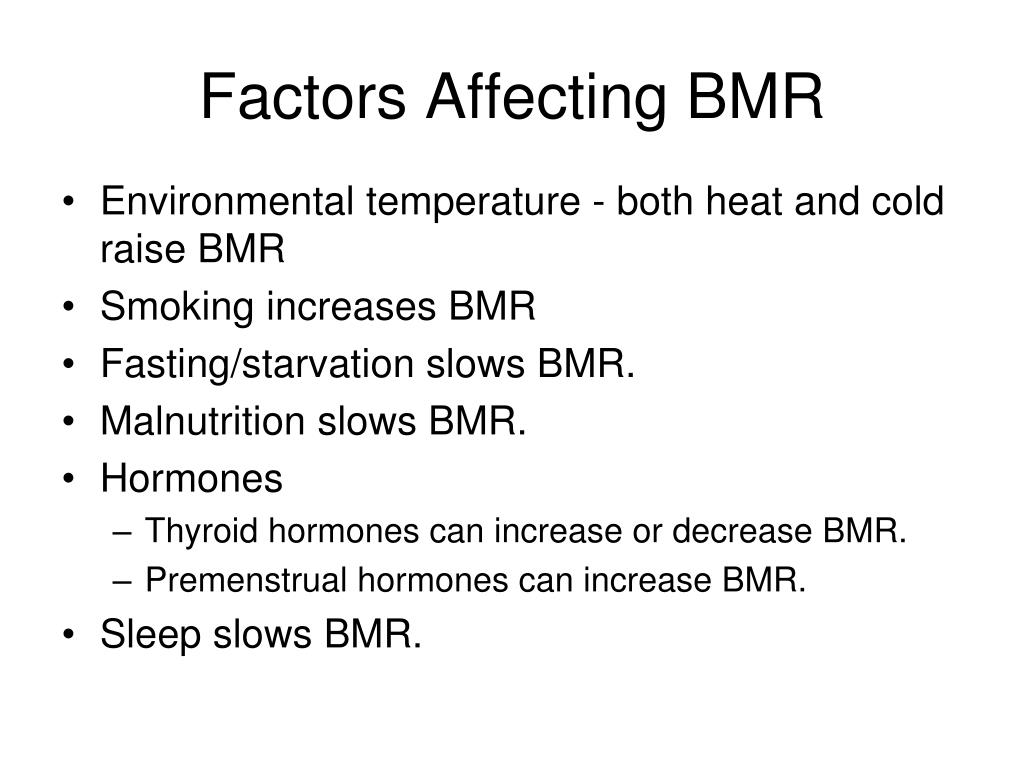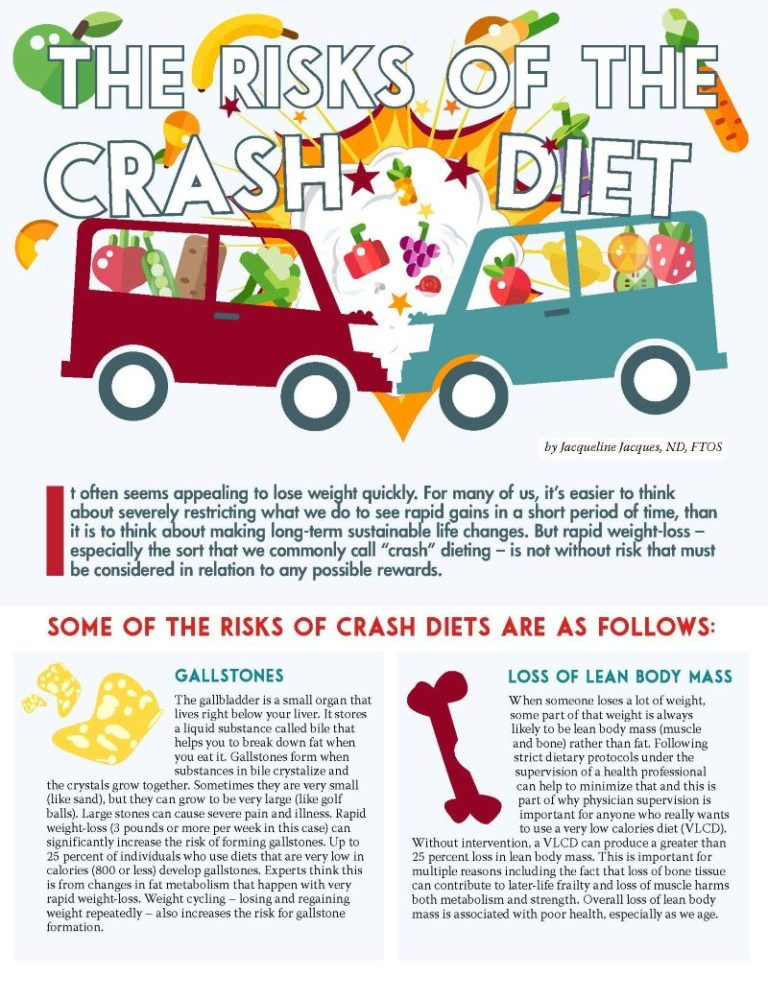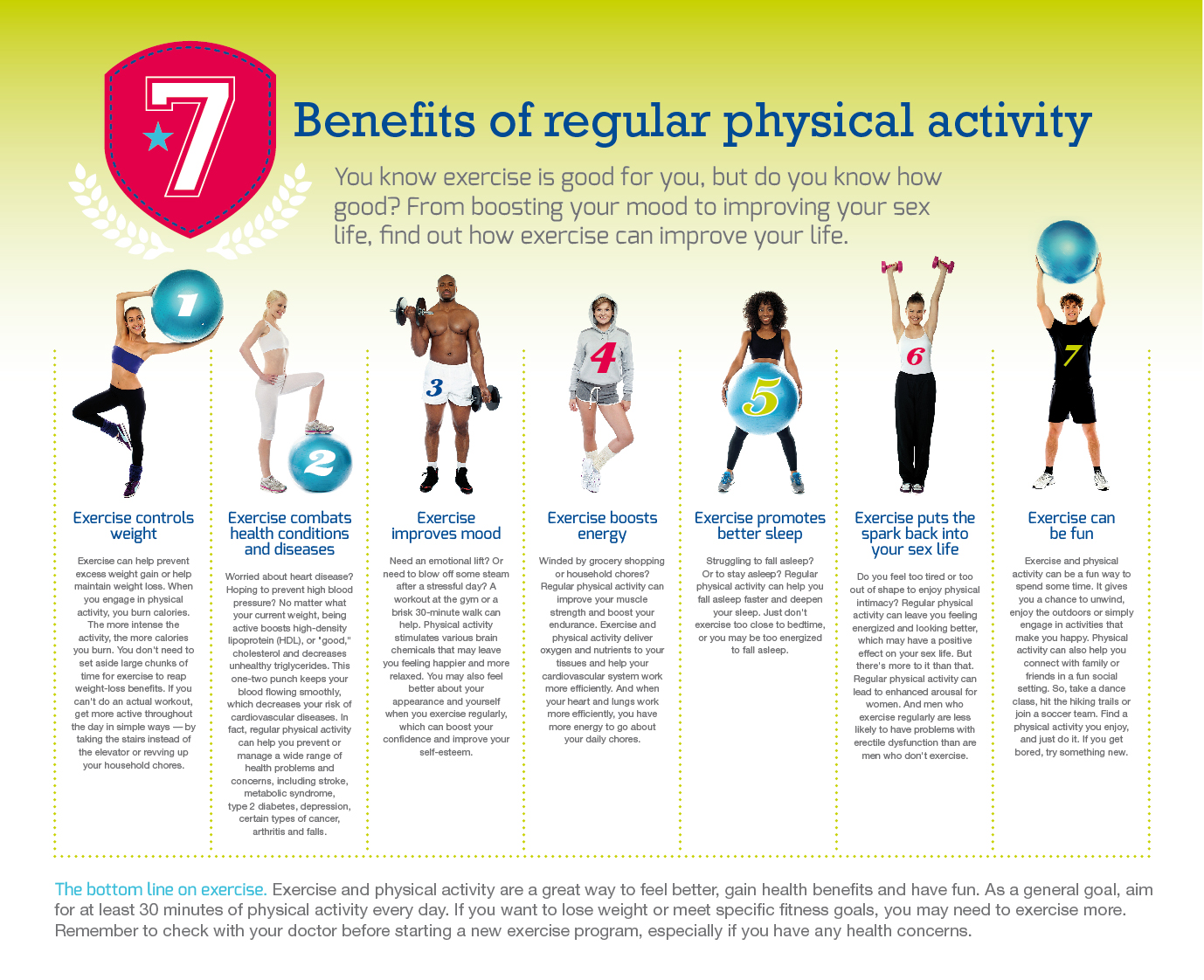Basal Metabolic Rate And Factors Affecting BMR Presentation
| Introduction to Basal Metabolic Rate (BMR) | ||
|---|---|---|
| Basal metabolic rate (BMR) is the minimum amount of energy required to sustain basic bodily functions at rest. BMR accounts for around 60-75% of the total calories burned in a day. BMR is influenced by various factors, including age, gender, body composition, and genetics. | ||
| 1 | ||
| Age and BMR | ||
|---|---|---|
| BMR tends to decrease with age due to the loss of muscle mass and a decrease in metabolic activity. The decline in BMR starts at around age 30 and continues throughout life. Regular physical activity and strength training can help slow down the decline in BMR associated with age. | ||
| 2 | ||
| Gender and BMR | ||
|---|---|---|
| Men generally have a higher BMR than women due to their higher muscle mass and testosterone levels. Women have a higher percentage of body fat, which has a lower metabolic rate compared to muscle tissue. Hormonal differences between genders also play a role in BMR variation. | ||
| 3 | ||
| Body Composition and BMR | ||
|---|---|---|
| Muscle tissue is more metabolically active than fat tissue, meaning it burns more calories at rest. Individuals with a higher muscle mass have a higher BMR. Regular strength training and resistance exercises can increase muscle mass, thereby increasing BMR. | ||
| 4 | ||
| Thyroid Function and BMR | ||
|---|---|---|
| The thyroid gland produces hormones that regulate metabolism. Low thyroid function (hypothyroidism) can lead to a decrease in BMR. Hyperthyroidism, on the other hand, can cause an increase in BMR. | ||
| 5 | ||
| Genetics and BMR | ||
|---|---|---|
| Genetic factors can influence an individual's BMR. Some people are naturally born with a higher or lower BMR due to their genetic makeup. However, genetic factors are not the sole determinants of BMR, and lifestyle choices can still have a significant impact. | ||
| 6 | ||
| Environmental Factors and BMR | ||
|---|---|---|
| Extreme temperatures can affect BMR as the body works harder to maintain its core temperature. Cold environments can slightly increase BMR, while hot environments can slightly decrease BMR. Altitude can also affect BMR, with higher altitudes leading to an increase in BMR due to the body's need for more oxygen. | ||
| 7 | ||
| Diet and BMR | ||
|---|---|---|
| Low-calorie diets can decrease BMR as the body adjusts to conserve energy. Crash diets and severe calorie restriction can significantly lower BMR. Adequate protein intake is crucial for maintaining muscle mass and a healthy BMR. | ||
| 8 | ||
| Physical Activity and BMR | ||
|---|---|---|
| Regular physical activity can increase BMR temporarily by burning calories. High-intensity exercises and strength training can lead to an increase in BMR even at rest. Sedentary lifestyles can lower BMR over time. | ||
| 9 | ||
| Conclusion | ||
|---|---|---|
| Basal metabolic rate (BMR) is the minimum energy required to sustain basic bodily functions at rest. BMR is influenced by factors such as age, gender, body composition, genetics, thyroid function, environment, diet, and physical activity. Understanding these factors can help individuals make informed decisions to maintain a healthy BMR and overall metabolism. | ||
| 10 | ||
| References (download PPTX file for details) | ||
|---|---|---|
| Manore, M. M., Meyer, N. L., Thompson, J. L.,... McArdle, W. D., Katch, F. I., & Katch, V. L. ... Speakman, J. R. (2013). Measuring energy meta... |  | |
| 11 | ||
